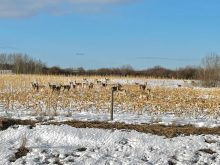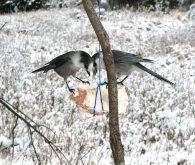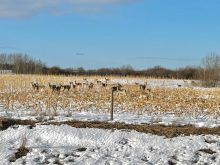Reuters – Europe has experienced its worst bird flu crisis ever this year with nearly 50 million poultry culled, and the persistence of the virus over the summer has raised the risk of widespread infections next season, the EU’s Food Safety Agency (EFSA) said.
The spread of highly pathogenic avian influenza (HPAI), commonly called bird flu, is a concern for governments and the poultry industry due to the devastation it can cause to flocks, the possibility of trade restrictions and a risk of human transmission.
[RELATED] Saskatchewan, Ontario ban birds at events
Read Also

AAFC organic research program cut
Canada’s organic sector says the loss of a federal organic research program at Swift Current, Sask., will set the industry back.
An unprecedented number of outbreaks were reported in wild and domestic birds this summer, causing massive mortality among sea bird breeding colonies on the north Atlantic coast, according to a joint overview by the EFSA, the European Centre for Disease Prevention and Control and the EU reference laboratory.
Bird flu usually strikes during the autumn and winter months. It is transmitted by infected migrating wild birds’ feces or direct contact with contaminated feed, clothing and equipment.
“As autumn migration begins and the number of wild birds wintering in Europe increases, they are likely at higher risk of HPAI infection than previous years due to the observed persistence of the virus in Europe,” said Guilhem de Seze, a senior official at the EFSA.














